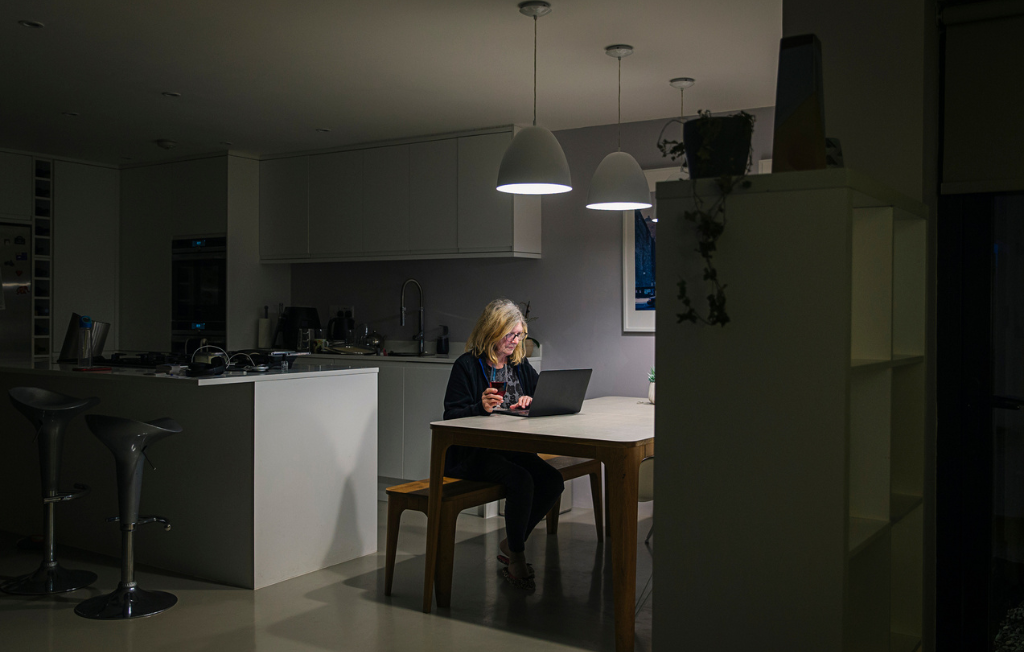Is the UK really experiencing a ‘great resignation’?
Employees are looking for great flexibility, better pay and more fulfilment at work, experts say

A free daily email with the biggest news stories of the day – and the best features from TheWeek.com
You are now subscribed
Your newsletter sign-up was successful
People across the world adapted to new ways of working during the pandemic and some began to reevaluate their careers as a result. That’s according to academic Anthony Klotz who, in 2021, predicted that the US was set to see a “great resignation” due to the sudden changes the workforce had experienced as a result of Covid-19.
The associate professor at University College London’s school of management gave four reasons for his theory, explained the Financial Times: “a backlog of pent-up resignations from the first uncertain year of the pandemic”, workers being “burnt out”, individuals having reflected “on how much meaning and contentment exists in their own lives” after being “confronted with death”, and “the unexpected freedom” that millions of workers had while working from home.
“The idea was brave at the time, because it was not reflected in the US workforce data,” said the newspaper. Just weeks later, the figures showed that around four million workers had indeed quit their jobs in April 2021, the highest resignation rate on record. By September, that number had reached 4.4m.
The Week
Escape your echo chamber. Get the facts behind the news, plus analysis from multiple perspectives.

Sign up for The Week's Free Newsletters
From our morning news briefing to a weekly Good News Newsletter, get the best of The Week delivered directly to your inbox.
From our morning news briefing to a weekly Good News Newsletter, get the best of The Week delivered directly to your inbox.
Is the UK seeing a great resignation?
While new research by McKinsey and Co indicates that in the US “this record-breaking trend isn’t going to quit any time soon”, said CNBC, the picture in the UK isn’t quite the same.
Writing for the Economics Observatory collective, Professor Jonathan Wadsworth said that he has found “little empirical evidence that resignations, hiring or movement between jobs in the UK are at historical highs”. Analysing data from the Labour Force Survey, which tracks household employment trends, he concluded there has been no sign that UK quit rates have surpassed previous levels, “let alone reached dizzying new heights”.
But workers’ feelings of satisfaction with their current role do appear to have been impacted by the pandemic. Of more than 2,000 respondents in a PwC survey published in May this year, 18% said they were likely to change their job in the next 12 months, with 32% saying they were moderately or slightly likely to. The top three factors for making a job change included pay, wanting fulfilment, and wanting to be themselves at work.
Is the world of work changing?
Time said last year that the pandemic had afforded “a chance to reinvent work” and “bring balance back into our levels to a degree that we haven’t seen at least since the widespread adoption of email and cell phones”.
A free daily email with the biggest news stories of the day – and the best features from TheWeek.com
Management practice professor Lynda Gratton told the London Business School’s Think blog that because people are living longer, they are focusing more on their health. “Rather than experiencing their life journey in those three traditional phases of education, work and retirement, people are starting to see life as a multi-stage voyage. They are hungry for the flexibility to mix and match the stages.”
Gratton has advised that business leaders can “weather the storm” of potential resignations by embracing flexibility about when and where employees’ work, understanding that this is the “beginning of the end for bad jobs” with unsociable hours and low pay, and keeping an eye on what competitors are doing and the benefits that they are offering staff.
The Overview
On this episode of The Overview podcast, The Week asks whether new ways of working will stick around after Covid. What do post-pandemic workers want? And should employees reconsider resigning as the world faces an economic crisis?
With guest experts Professor Wadsworth, Professor Gratton, author of Redesigning Work, and behavioural change coach Gemma Perlin.
Julia O'Driscoll is the engagement editor. She covers UK and world news, as well as writing lifestyle and travel features. She regularly appears on “The Week Unwrapped” podcast, and hosted The Week's short-form documentary podcast, “The Overview”. Julia was previously the content and social media editor at sustainability consultancy Eco-Age, where she interviewed prominent voices in sustainable fashion and climate movements. She has a master's in liberal arts from Bristol University, and spent a year studying at Charles University in Prague.
-
 Political cartoons for February 10
Political cartoons for February 10Cartoons Tuesday's political cartoons include halftime hate, the America First Games, and Cupid's woe
-
 Why is Prince William in Saudi Arabia?
Why is Prince William in Saudi Arabia?Today’s Big Question Government requested royal visit to boost trade and ties with Middle East powerhouse, but critics balk at kingdom’s human rights record
-
 Wuthering Heights: ‘wildly fun’ reinvention of the classic novel lacks depth
Wuthering Heights: ‘wildly fun’ reinvention of the classic novel lacks depthTalking Point Emerald Fennell splits the critics with her sizzling spin on Emily Brontë’s gothic tale
-
 What's Jeff Bezos' net worth?
What's Jeff Bezos' net worth?In Depth The Amazon tycoon and third richest person in the world made his fortune pioneering online retail
-
 'Brain drain' fear as record numbers leave New Zealand
'Brain drain' fear as record numbers leave New ZealandUnder The Radar Neighbouring Australia is luring young workers with prospect of better jobs
-
 Ghost kitchens are pulling a disappearing act
Ghost kitchens are pulling a disappearing actunder the radar The delivery-only trend is failing to live up to the hype built up during the pandemic
-
 The birth of the weekend: how workers won two days off
The birth of the weekend: how workers won two days offThe Explainer Since the 1960s, there has been talk of a four-day-week, and post-pandemic work patterns have strengthened those calls
-
 Why household wealth took off during the pandemic
Why household wealth took off during the pandemicUnder The Radar The Covid-19 pandemic caused a lot of pain and hardship, but new research shows it also left most Americans wealthier
-
 Empty office buildings are blank slates to improve cities
Empty office buildings are blank slates to improve citiesSpeed Read The pandemic kept people home and now city buildings are vacant
-
 Inflation vs. deflation: which is worse for national economies?
Inflation vs. deflation: which is worse for national economies?Today's Big Question Lower prices may be good news for households but prolonged deflation is ‘terrible for the economy’
-
 America's 'cataclysmic' drop in college enrollment
America's 'cataclysmic' drop in college enrollmentToday's Big Question "The slide in the college-going rate since 2018 is the steepest on record"